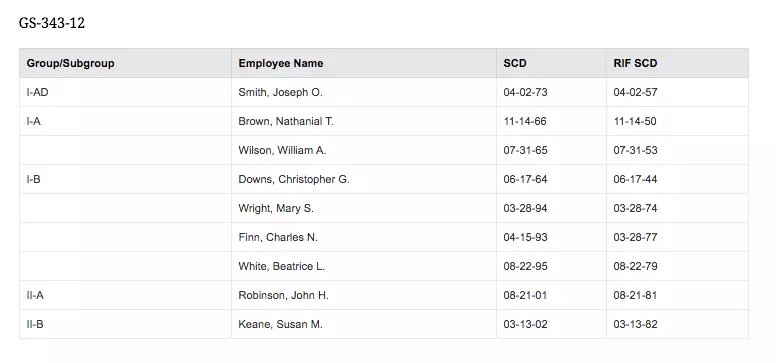Merit Systems Protection Board (MSPB) Law FAQs
 Below we have provided general information on commonly asked questions we receive about Merit Systems Protection Board (MSPB) law. Please keep in mind that this information is general in nature; we highly recommend talking with one of our MSPB lawyers to receive information specific to your case. Our law firm has represented thousands of federal employees from coast-to-coast, and we are here to help you!
Below we have provided general information on commonly asked questions we receive about Merit Systems Protection Board (MSPB) law. Please keep in mind that this information is general in nature; we highly recommend talking with one of our MSPB lawyers to receive information specific to your case. Our law firm has represented thousands of federal employees from coast-to-coast, and we are here to help you!
Merit System Protection Board Appeals
Hence if a federal agency does not follow standard procedure or if an employee is otherwise removed unjustly, the employee can file an appeal with the Merit Systems Protection Board. If you are in this situation, it is crucial that you consult with a lawyer familiar with the MSPB and federal removal process. Do this as soon as you are notified of the removal or termination, since timing is of the essence when filing an appeal. You should know your rights and be completely informed as to what remedies you are entitled under federal law.
Next, the MSPB will not provide advice or guidance on employment policies or examination of benefits. This responsibility belongs to the Office of Personnel Management (OPM).
Finally, the MSPB will not investigate prohibited personnel practices (PPP). This is the responsibility of the Office of Special Counsel (OSC), but the MSPB will hear appeals related to PPP’s. Leitner Varughese Warywoda Law, can work with you to prosecute your PPP complaint before the OSC.
Like removal, demotion may be deemed proper if the basis is poor performance. Employees must receive notice of the proposed demotion, and must also get an opportunity to respond or counter the proposal offer. Accepting a demotion doesn’t necessarily eliminate an employee’s ability to contest this demotion before the MSPB. However, it can create be more difficult trying to convince a judge that the demotion was wrongful if there was due process and the appealing employee voluntarily accepted a proposed demotion.
Our attorneys have had success appealing cases for Reconsideration by the OPM, appealing to the Merit System Review Board (MSPB), appealing to Federal Appellate Courts.
Federal Employment Retirement Benefits
Federal Whistleblower Protections
Federal employees are encouraged to speak out if they witness illegal or unethical activities at work. This includes abuses of authority by supervisors, gross wastes of funds, or other government wrongdoing. Unfortunately, some whistleblowers find themselves facing work-related retaliation as a result of their whistleblowing. Although it is illegal to retaliate against an employee as a result of whistleblowing activities, retaliation is still an all too prevalent practice. If you are a Federal employee of any agency, including the USPS and Department of Veterans Affairs and more, and you are facing retaliation after disclosing government wrongdoing, we can help. Call the attorneys at LVW Law at (888) 594-0424 or complete the form to your right and we will contact you to discuss your rights. When you need us, we’re here for you.
Federal Reduction In Force
- Cutting travel or training expenses. This is one of the most common ways agencies avoid RIFs. Travel and training generally come from the same accounts which disburse salaries.
- Cutting purchase or maintenance expenses.
- Instituting unpaid furloughs.
- Offering employee buyouts, or Voluntary Separation Incentive Payments (VSIP).
- Offering employee retirement packages.
Disciplinary and Adverse Actions
Merit Systems Protection Board Law Glossary
Merit Systems Protection Board (MSPB)
Federal Employees Retirement System (FERS)
Civil Service Retirement System (CSRS)
Office of Personnel Management (OPM)
About Your Case
Please keep in mind that the above information is general in nature and is not intended to replace specific legal advice about your particular situation! To get your questions answered, please contact our MSPB attorneys today at (888) 594-0424 to arrange a consultation. Our law firm has represented thousands of federal employees from coast-to-coast and we are available to help you!




